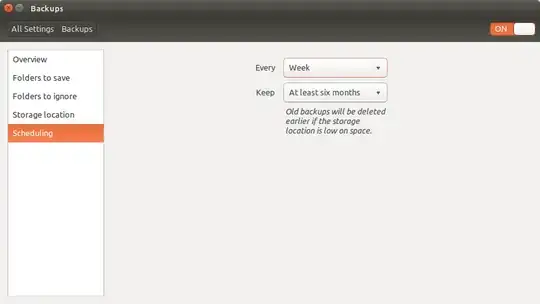I have 16.04 installed and it runs Backup periodically. I noticed recently that a surprising amount of disk space on my system was used, roughly 530GB out of 700GB total. Looking into the problem with the command ncdu and Disk Usage Analyzer, I saw that out of a total of 530GB used 377GB was accounted for by the folder /deja-dup! This seems way too high to me (how can the backups be so much larger than the thing they are backing up?), but I admit a thorough ignorance about how this is supposed to work. Is this abnormal?
Worryingly, I have the impression that /deja-dup is growing. My temptation is to just delete it, but I would like to have a backup program running properly. Not sure whether it is pertinent but I enter a password each time backup starts.
Any help in diagnosing this problem, or pointing me towards a solution would be greatly appreciated.
